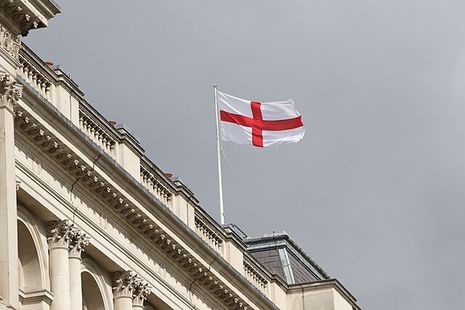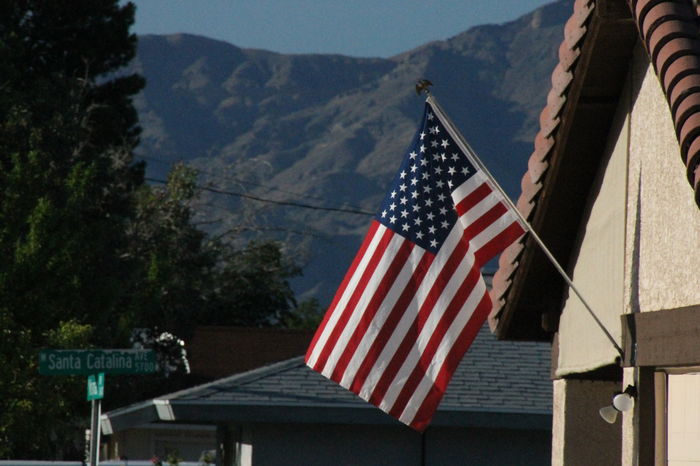Flying the flag, properly
Elena Buermann argues that we should reclaim our national flags to make them symbols of unity, not division

This summer, anyone driving into Cambridge was met with rows of St George’s flags fluttering along the A1198, a scene repeated in towns and cities across the UK. By September, the Cambridgeshire display had been removed in a late-night “operation,” just as others were elsewhere. It was a familiar instinct, one that speaks to a broader national awkwardness with the flag. We have somehow managed the peculiar trick of treating our national flag as if it were a forbidden good. Yet this instinct, born of a particular left-wing caution, doesn’t solve the problem – it politely steps aside and leaves the flag to be appropriated by the loudest voices.
This suspicion that symbols are too compromised to be handled at all has become a hallmark of progressive politics. We’ve seen the pattern before. The poppy in November, once a simple emblem of remembrance, has become fraught for many on the left. It’s now viewed by some as a badge of jingoism and an indulgence in militarism. Yet abandoning it has not weakened “remembrance culture”; it has only allowed it to be more firmly associated with the right. By refusing to use the symbol of the poppy, progressives surrender it, instead of taking it up on their own terms – when remembrance could in fact offer exactly the kind of shared ground our politics so badly lacks.
“We have somehow managed the peculiar trick of treating our national flag as if it were a forbidden good”
As a humanities student, I’ve internalised the critique. I can see the supervision debate before me: empire, war, exclusion. It’s a familiar catalogue, and rightly so. Flags are far from innocent, they carry their histories with them. What begins as a simple display of pride can turn all too easily into real hostility and a demand for cultural conformity. This, understandably, is what prompts councils to act early.
Yet in a supervision, the tiresome question of what we are actually to do about it might well never arise. Pragmatically – or so I would argue if it did – we don’t resolve this tension by retreating from national symbolism altogether. We cannot stop people flying flags, nor can we wish them out of public life altogether. What we can do is refuse to let them stand for only one thing. In the demonstrations in London a couple of weeks ago, the Union Jack was claimed exclusively by the far-right and was conspicuously absent from the counter-demonstration. Would it not have been a striking gesture if the counter-demonstration had taken up the Union Jack, insisting that this, too, is ours, and this country does not stand for hatred alone?
“Leave the flag to its loudest custodians, and it will shrink to the narrow meaning they impose”
At Girton, the flag question surfaced at our JCR committee. We drafted a flag-flying schedule; the Union Jack was not suggested. The college added it anyway. In the final plan, the transgender pride flag and the Union Jack will fly in the same week – a pairing that I agree with. It speaks of a college that is historically aware and progressive, yet willing to express pride in the country too. We are demonstrating a confidence in our values, and a perhaps slightly sanguine belief that national identity and diversity can coexist harmoniously. Such optimism is precisely what is needed to make this a reality.
The whole flag affair reminds me of classic sibling rage-bait: the more you rise to it, the more your sibling will enjoy themselves. Ignore it, or better yet join in on your own terms, and the game loses its edge. Leave the flag to its loudest custodians, and it will shrink to the narrow meaning they impose. That may trouble the purist, who would prefer to tidy the matter away. But politics is never conducted on a clean slate, and symbols have a stubborn way of lingering. The flag will fly regardless – the only question is whether it flies for us all.
 News / Colleges charge different rents for the same Castle Street accommodation2 March 2026
News / Colleges charge different rents for the same Castle Street accommodation2 March 2026 News / News in Brief: waterworks, wine woes, and workplace wins 1 March 2026
News / News in Brief: waterworks, wine woes, and workplace wins 1 March 2026 News / Climate activists protest for ‘ethical careers policy’1 March 2026
News / Climate activists protest for ‘ethical careers policy’1 March 2026 News / Angela Merkel among Cambridge honorary degree nominees27 February 2026
News / Angela Merkel among Cambridge honorary degree nominees27 February 2026 News / Private school teacher who lied about Cambridge degree barred from teaching27 February 2026
News / Private school teacher who lied about Cambridge degree barred from teaching27 February 2026









